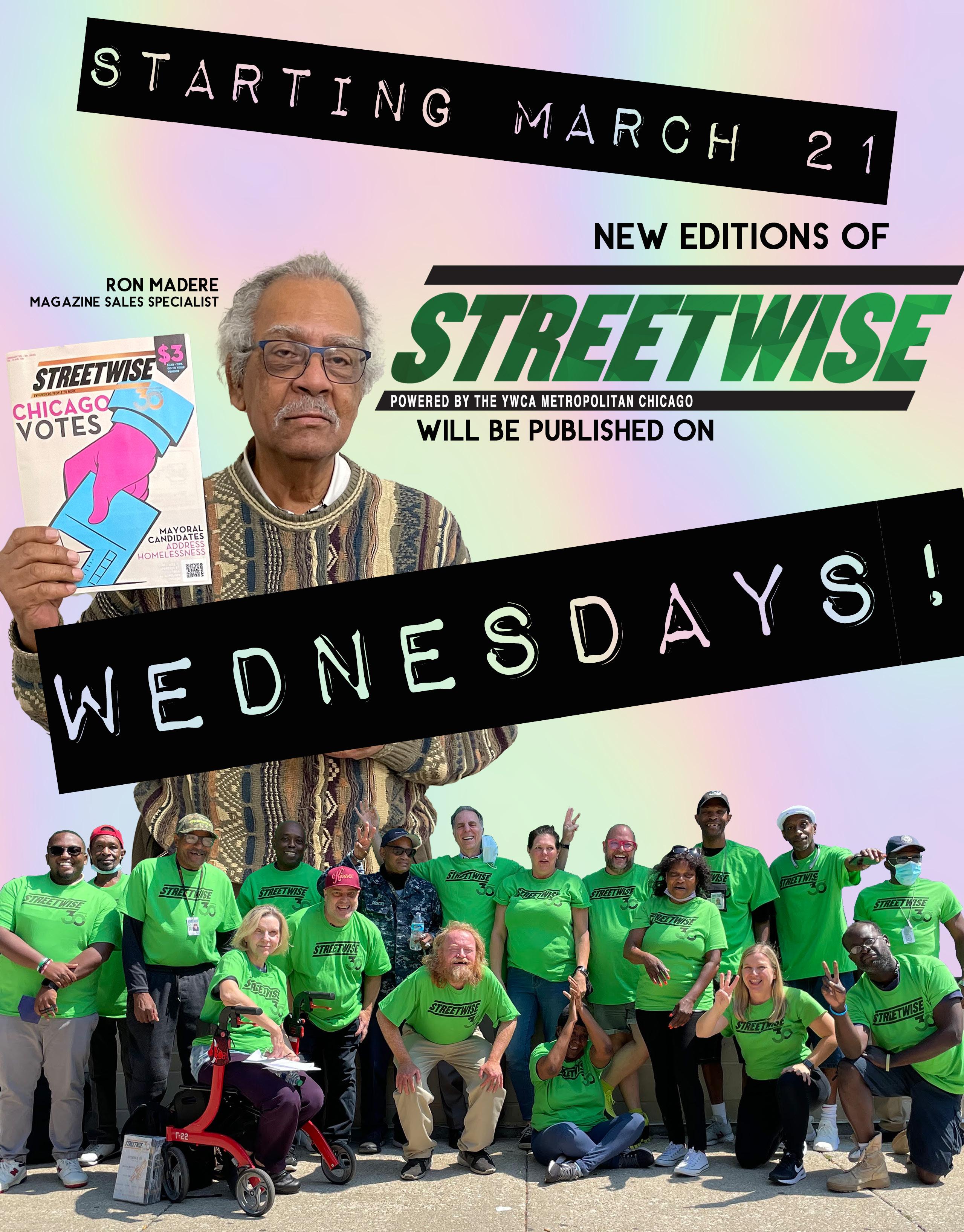
3 minute read
Five Shelters Get Grants for New, More Private Model
North Side Housing and Supportive Services is among five grantee finalists for a Shelter Acquisition program funded through the Chicago Recovery Plan to help existing shelters develop freshly rehabbed, non-congregate environments. The Chicago Department of Housing (DOH) and Chicago Department of Family and Support Services (DFSS) jointly announced finalists on February 24.
The non-congregate shelters are a continuation of work at the start of the COVID-19 pandemic, when DOH, DFSS and the Chicago Department of Public Health (CDPH) leased space in hotels for people who lived in traditional shelters. The more private accommodations greatly improved their physical and mental health.
North Side Housing secured a Special Use Permit February 17 from the Zoning Board of Appeals for conversion of a long-vacant health center at 7464 N. Clark St. into a shelter. The new shelter was approved after extensive community meetings and a survey by Ald. Maria Hadden (49th ward).
The 72-bed shelter will offer more privacy, with 18 shared sleeping rooms of four beds each. There will also be five bathrooms, a shower facility, a kitchen, communal space and offices for support staff. The men will have access to three meals a day and additional wrap-around services.
North Side now operates a temporary, 50-bed shelter in a rented motel at 7300 N. Sheridan Road, after moving out of the Preston Bradley Center in Uptown because of building code violations.
The four other Shelter Acquisition grantee finalists are:
• Cornerstone Community Outreach, which plans a North Side shelter for 28-65 single adults;
• Franciscan Outreach, for a West Side shelter for 50-100 single adults;
• La Casa Norte, whose youth shelter for 30 to 75 persons aged 18-24 could be on the West, Southwest or Northwest Sides;
• Unity Parenting and Counseling, Inc., which proposes a youth shelter for 24 to 30 persons aged 18-24 on the Southeast, Southwest or Far South Sides.
DOH officials said they expect each of the grantees to acquire their shelter and rehab it this year, as the first step in the city’s transition to a noncongregate model.
Sites were still being finalized as of February 24, according to DOH spokesperson Rima Alsammarae. The exact dollar amounts of grants would also be announced at closing.
Before the COVID-19 pandemic, over 80 percent of Chicago’s shelter beds for single adults were in open space shared by at least 20 people. Research by University of Chicago Medicine and Lawndale Christian Health Center showed improved health and fewer self-reported mental health symptoms for people who were moved to hotels. More than half of participants moved to longer term housing.
–Suzanne Hanney, from prepared materials







